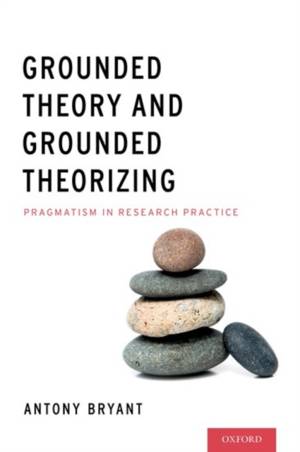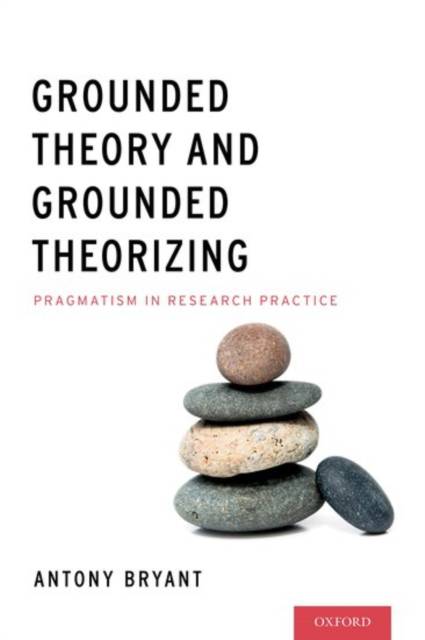
Je cadeautjes zeker op tijd in huis hebben voor de feestdagen? Kom langs in onze winkels en vind het perfecte geschenk!
- Afhalen na 1 uur in een winkel met voorraad
- Gratis thuislevering in België vanaf € 30
- Ruim aanbod met 7 miljoen producten
Je cadeautjes zeker op tijd in huis hebben voor de feestdagen? Kom langs in onze winkels en vind het perfecte geschenk!
- Afhalen na 1 uur in een winkel met voorraad
- Gratis thuislevering in België vanaf € 30
- Ruim aanbod met 7 miljoen producten
Zoeken
Grounded Theory and Grounded Theorizing
Pragmatism in Research Practice
Antony Bryant
Hardcover | Engels
€ 193,45
+ 386 punten
Omschrijving
The grounded theory method is founded on a view of analysis whereby the research questions and potential hypotheses are not articulated at the outset; rather, the researcher initially seeks to gain familiarity with a research context, and only in later stages does the process become
progressively more focused and targeted. As such, the grounded theory method uses familiar research tools and techniques (coding, sampling, classification) but in distinctive and innovative ways. As a result, the method is one of the most widely used-if not the most widely used-method in current
qualitative research. Initially aimed at the social sciences, the grounded theory method has now spread so far that it can be found in almost any subject area or discipline in which people are observed or interviewed as participants. In Grounded Theory and Grounded Theorizing: Pragmatism in Research Practice, author Antony Bryant illustrates the key features of grounded theory method by showcasing examples from several of his most successful doctoral students. In this accessible volume, Bryant provides expert guidance on the use
of grounded theory method in qualitative research by emphasizing and illustrating the essential features and background of the method for readers and researchers of all levels and competencies.
progressively more focused and targeted. As such, the grounded theory method uses familiar research tools and techniques (coding, sampling, classification) but in distinctive and innovative ways. As a result, the method is one of the most widely used-if not the most widely used-method in current
qualitative research. Initially aimed at the social sciences, the grounded theory method has now spread so far that it can be found in almost any subject area or discipline in which people are observed or interviewed as participants. In Grounded Theory and Grounded Theorizing: Pragmatism in Research Practice, author Antony Bryant illustrates the key features of grounded theory method by showcasing examples from several of his most successful doctoral students. In this accessible volume, Bryant provides expert guidance on the use
of grounded theory method in qualitative research by emphasizing and illustrating the essential features and background of the method for readers and researchers of all levels and competencies.
Specificaties
Betrokkenen
- Auteur(s):
- Uitgeverij:
Inhoud
- Aantal bladzijden:
- 432
- Taal:
- Engels
Eigenschappen
- Productcode (EAN):
- 9780199922604
- Verschijningsdatum:
- 12/01/2017
- Uitvoering:
- Hardcover
- Formaat:
- Genaaid
- Afmetingen:
- 157 mm x 236 mm
- Gewicht:
- 884 g

Alleen bij Standaard Boekhandel
+ 386 punten op je klantenkaart van Standaard Boekhandel
Beoordelingen
We publiceren alleen reviews die voldoen aan de voorwaarden voor reviews. Bekijk onze voorwaarden voor reviews.









